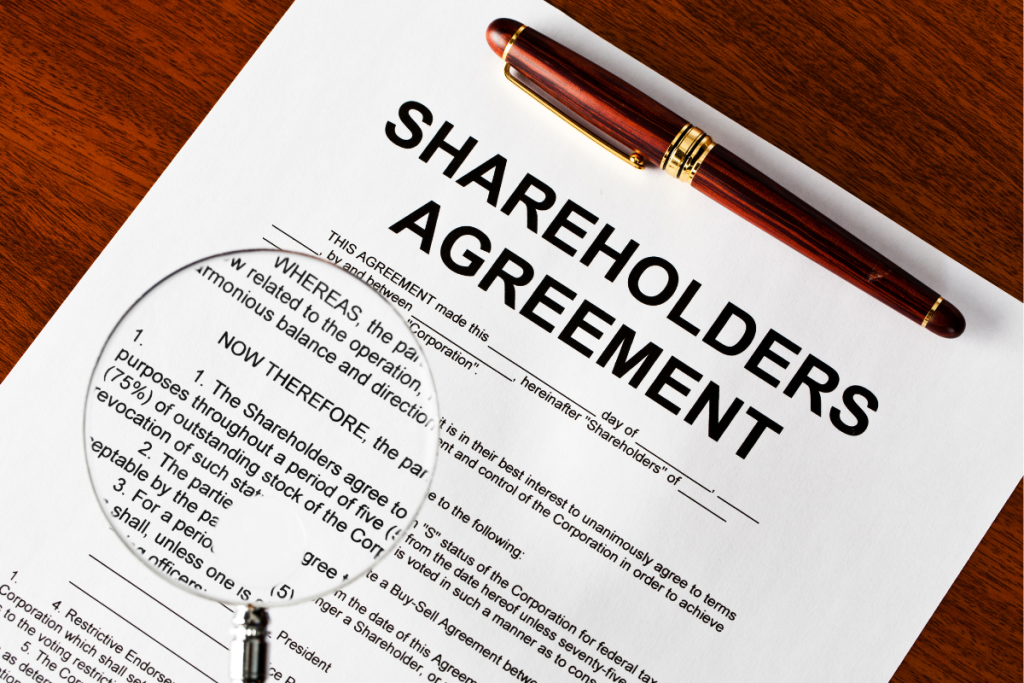What Every Business Owner Should Know
In Nigeria’s evolving business environment, shareholder agreements play a crucial role in protecting the interests of business partners and ensuring smooth corporate governance. Whether you’re launching a new company or restructuring an existing one, understanding how shareholder agreements work is essential to managing corporate relationships, safeguarding investments, and ensuring compliance with Nigerian law.
What Is a Shareholder Agreement?
A shareholder agreement is a legally binding document that outlines the rights, obligations, and responsibilities of a company’s shareholders. It acts as a rulebook for how a company should be managed and how decisions are made. Unlike a company’s articles of association, which are public documents filed with the Corporate Affairs Commission (CAC), shareholder agreements are private and confidential among shareholders.
Why Is a Shareholder Agreement Important?
- Clarity in Roles and Responsibilities
Shareholder agreements define the specific roles of each shareholder, including voting rights, powers to appoint directors, and duties in the company. - Dispute Resolution
One of the most significant benefits is its ability to minimize disputes. It sets out procedures for resolving disagreements and what steps to take if conflicts arise. - Protection for Minority Shareholders
These agreements often include clauses to protect minority shareholders from being outvoted or unfairly treated by majority shareholders. - Business Continuity and Exit Strategies
Provisions such as drag-along, tag-along, and buy-out clauses make it easier to plan exits, acquisitions, or changes in ownership without disrupting business operations. - Control and Ownership Structures
The agreement can define how shares can be transferred, ensuring that ownership remains within agreed boundaries.
Key Components of a Nigerian Shareholder Agreement
If you’re drafting or reviewing a shareholder agreement in Nigeria, here are the essential clauses to include:
Who Needs a Shareholder Agreement?
- Ownership Structure: Allocation and percentage of shares held by each shareholder.
- Decision-Making Process: Voting rights, quorum for meetings, and board composition.
- Dividend Policy: When and how dividends will be distributed.
- Dispute Resolution Clause: Use of arbitration or mediation as an alternative to litigation.
- Transfer of Shares: Conditions under which shareholders can sell or transfer shares.
- Non-Compete Clause: Restrictions preventing shareholders from setting up rival businesses.
- Deadlock Resolution: Steps to take when there’s an impasse in decision-making.

Legal Compliance and Best Practices in Nigeria
In Nigeria, shareholder agreements should comply with the Companies and Allied Matters Act (CAMA) 2020, which governs corporate law. It is crucial to engage a legal practitioner who is familiar with CAMA and has experience in corporate and commercial law to draft or review the agreement.
At Penlit & Greyson Legal Practice, our team of corporate law experts helps businesses draft tailor-made shareholder agreements that meet both Nigerian legal standards and the strategic goals of our clients. We offer advisory services on structuring joint ventures, startups, mergers, and acquisitions, ensuring that your shareholder agreement aligns with your company’s long-term vision.
- Startups with multiple founders
- Companies seeking private investors
- Family-owned businesses with several shareholders
- Foreign investors entering joint ventures in Nigeria
- Companies planning restructuring or expansions
Final Thoughts
A well-drafted shareholder agreement is essential for the sustainability of your business. It promotes transparency, accountability, and trust among shareholders. For companies operating in Nigeria, it also provides a legal shield against uncertainties and business risks.
Whether you’re a startup or an established entity, don’t wait for disputes to arise before setting clear terms. Contact Penlit & Greyson Legal Practice today for expert guidance on shareholder agreements and other corporate and commercial legal services in Nigeria.



